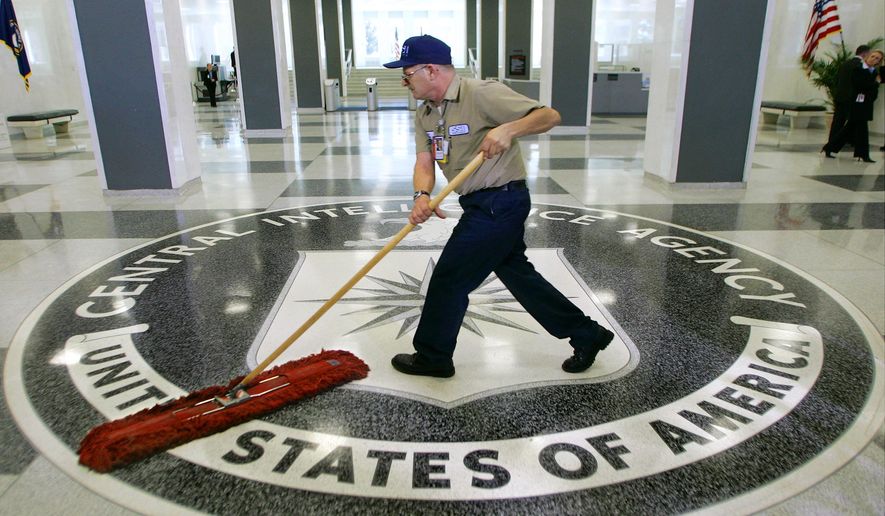OPINION:
As former CIA officers with over 30 years each during times of tremendous turmoil and challenge, we are dismayed that the Senate Intelligence Committee members were unable to produce a comprehensive, definitive report on the CIA’s detention and interrogation program. Failure to do so has done a great disservice to the men and women of the CIA, to the public at large, and to the notion of intelligence oversight. We think there is ample support in both the minority report and the CIA rebuttal to call into question much of the committee’s majority report. This is an unfortunate outcome that could have been avoided.
As many others have noted, the study lacks the context and insights that easily could have been obtained if the committee had interviewed CIA and other Government officials to present their views of the program’s value as well as the allegations of deception.
It also is unfortunate that the Committee did not have access to documentation held by the White House that undoubtedly would have shed light on both Administration decision-making that authorized the CIA’s activities as well as congressional interactions that condoned if not encouraged them. A more credible effort would have resolved the significant disagreements between the majority and minority views on those matters prior to issuance as an official congressional product that is being touted around the world as a more definitive history than it is.
We take no position on the legal and moral questions identified in the majority report — whether the harsh interrogation techniques described were or were not torture. Moreover, we believe that national security might provide an understandable reason, but not necessarily a valid excuse, for torture or inhumane actions. It is appropriate that pundits and experts debate such questions.
These are matters of honest disagreement and nuance to some, while crystal clear in the minds of others. Although the issues raised by the report are not new, the actions reflected in the report have invited a further look and reflection. We are concerned, however, that important debate about those techniques has obscured and even taken at face value the majority report’s dubious conclusions that CIA systematically misled Congress and the White House and tenuous analytic judgments that the harsh techniques did not work. A CIA intent on deception would hardly have kept and provided Congress records on such matters, and there is considerable evidence that the tactics produced valuable intelligence.
Disturbingly, some commentators today criticize former CIA officials attempting to explain their actions as not believable, simply by virtue of their employment as CIA employees. That view would have the public assume that CIA lies and that, therefore, nothing it says in its defense is believable.
Indeed, many take the report at face value and denigrate former and current CIA officials, even calling for resignations, for attempting to defend themselves or their colleagues for what they see as wrongful accusations. This is not a responsible way to treat public servants who have acted in good faith service to their country based upon assurances that their actions were legal and properly authorized to prevent another horrific attack on the nation.
The CIA has admitted mistakes – the program was not managed well at the early stages and some officers exceeded their mandates in ways that should make anyone cringe. We support full and open discussion on important issues of national security and US principles and values, as well as about the scope and nature of our counterterrorism efforts in the future. The majority report and the resulting firestorm of criticisms have unduly smeared the integrity of dedicated officers and employees, if not the CIA as a whole, and left the public at large with a skewed and misleading view about the actions and motives of CIA officials, including those current employees with no connection to the interrogation program.
The U.S. Department of Justice has spoken on these incidents, and it is appropriate to consider whether there has been sufficient administrative accountability for failures of CIA individuals. However, this report will provide a tremendous propaganda tool for our enemies and others abroad, including those who will attempt to use their legal systems to prosecute former U.S. government officials – whether CIA, policymakers, or even members of Congress who were briefed and could have objected.
Sadly, this placement of a bull’s eye on CIA is not surprising. Many of us knew this would happen, and in the wake of the Justice Department’s earlier investigations, we created a non-profit that would attempt to bring balance to the debates about the role, challenges and risks facing CIA officers and to assist them and other intelligence personnel who might need legal help in connection with matters arising out of their service. We should not forget those people in our debates, nor brand them unfairly as liars and villains.
We agree that the public deserves to know the truth, the whole truth – about CIA, about policy decisions, and about congressional oversight and failures. People who acted in good faith to help ensure there would be no more attacks on our soil and others who arrived after the events in question took place also deserve the truth and a clear understanding of what their obligations are and how they will be protected when they meet them. This is important for our nation and to help ensure both a sound policy and legal basis for future actions. Unfortunately, they won’t get the whole truth from the Senate Committee’s majority report.
W. George Jameson and William D. Murray are the co-Founders of the Council on Intelligence Issues (CII), which informs the public about challenges facing CIA and other intelligence officers and provides informational services for employees who need legal help. Mr. Jameson is a former CIA attorney and Mr. Murray is a former senior operations officer with considerable overseas experience.




Please read our comment policy before commenting.